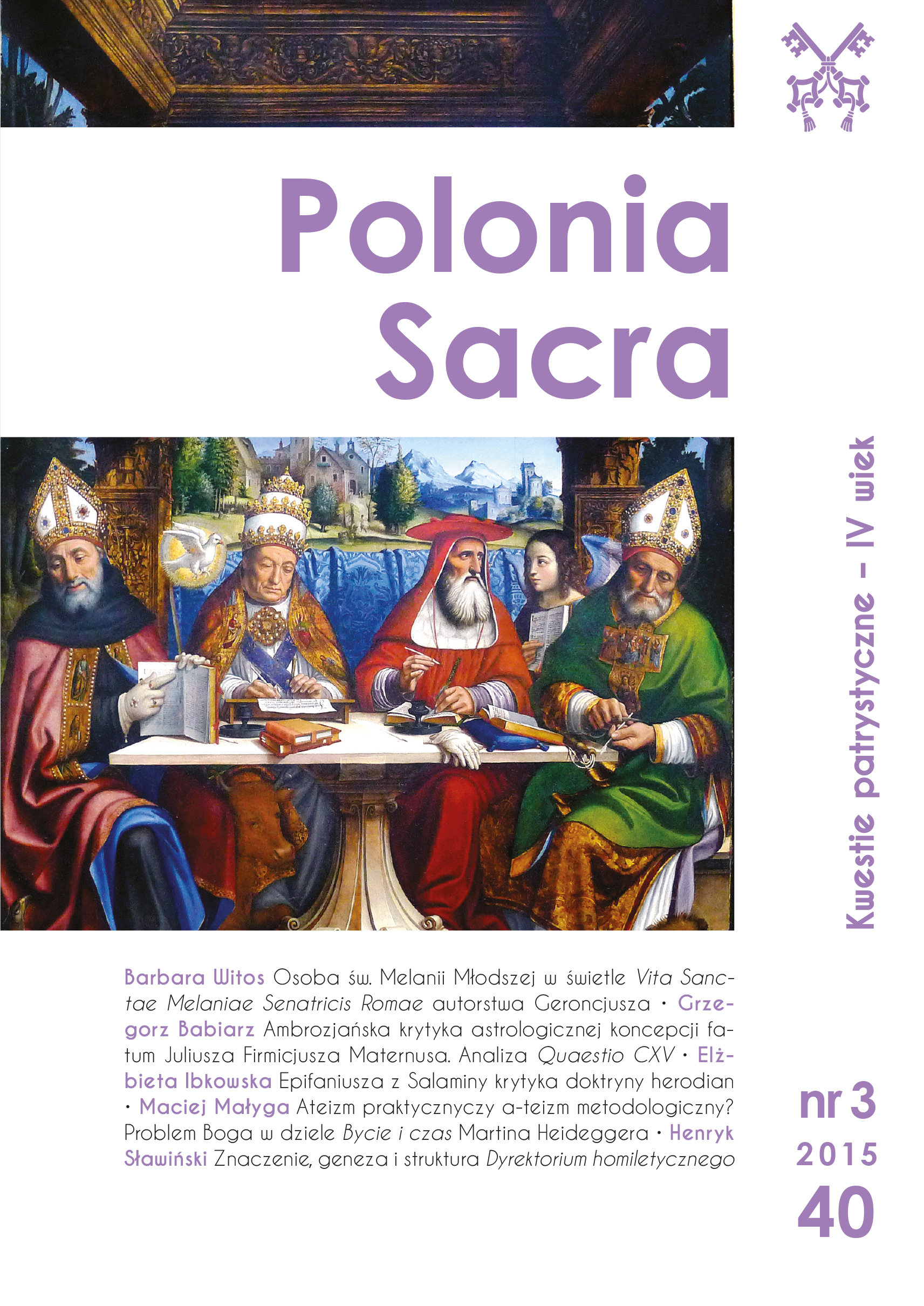Ateizm praktyczny czy a-teizm metodologiczny? Problem Boga w dziele Bycie i czas Martina Heideggera
Dogmatic Atheism or Methodological A-theism? The Question of God in Martin Heidegger’s Being and Time
Author(s): Maciej MałygaSubject(s): Christian Theology and Religion, Political Philosophy, Contemporary Philosophy, Philosophy of Religion, Phenomenology, Sociology of Religion
Published by: Wydawnictwo Naukowe Uniwersytetu Papieskiego Jana Pawła II w Krakowie
Keywords: Martin Heidegger; Being and time; atheism; „God is dead”; phenomenology; national socialism;
Summary/Abstract: In his famous work from 1927, Being and time, Martin Heidegger remains noticeably silent on the subject of God. His silence may be interpreted as a form of atheism, more methodological than dogmatic, which excludes the question of God from the methods of phenomenology. The fundamental ontology, which Heidegger wanted to expand upon in Being and Time, is based upon a theological distinction between Being and God. Although his atheism must be classified as being of a methodological nature, the events which occurred following the publication of Being and Time can be accounted for, to some extent, by the view held by Catholic theologians, that Heidegger was a philosopher who denied God’s existence. He had accepted Nietzsche’s diagnosis that God was dead and had developed a vision for the intellectual renewal of mankind based on the ideology of National Socialism. Catholic theology initially considered his work to be a crude argument in favour of atheism. Only later was a more positive assessment of his philosophical work generally accepted.
Journal: Polonia Sacra
- Issue Year: 19/2015
- Issue No: 3
- Page Range: 91-115
- Page Count: 25
- Language: Polish

